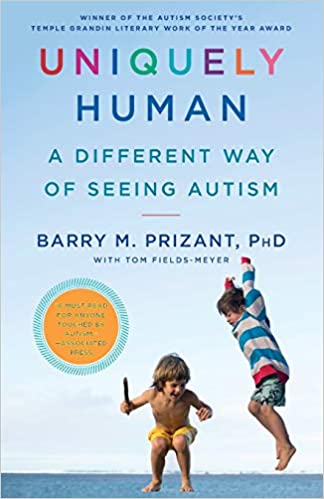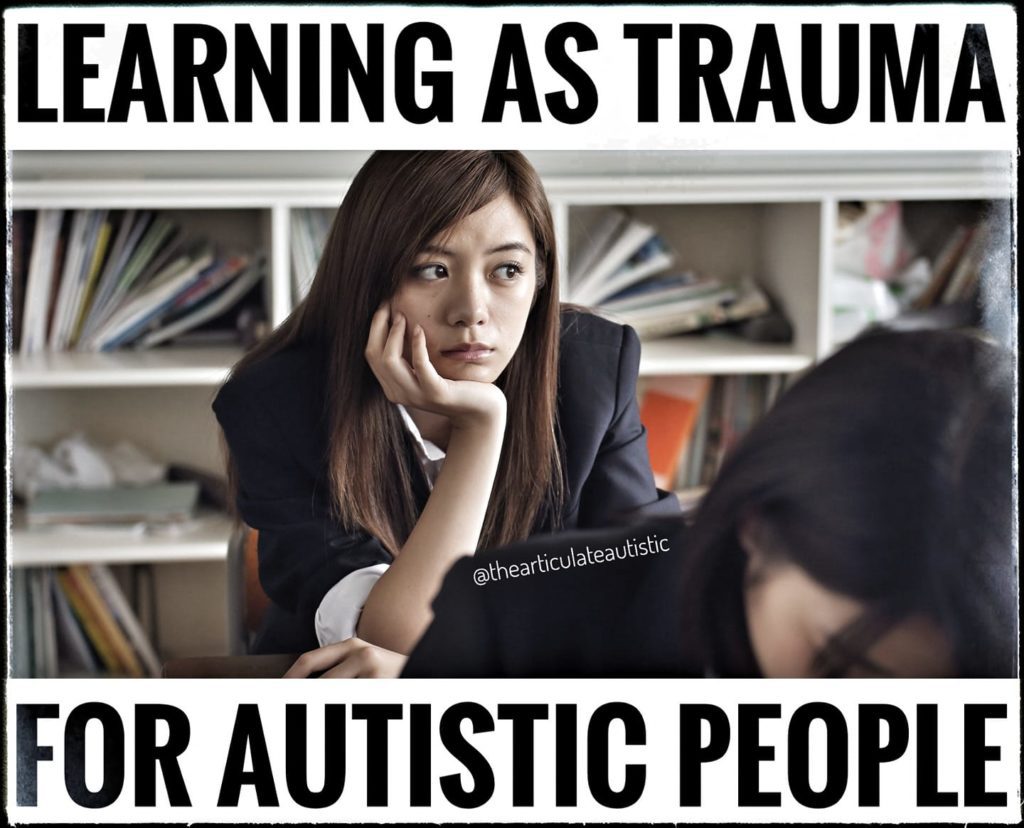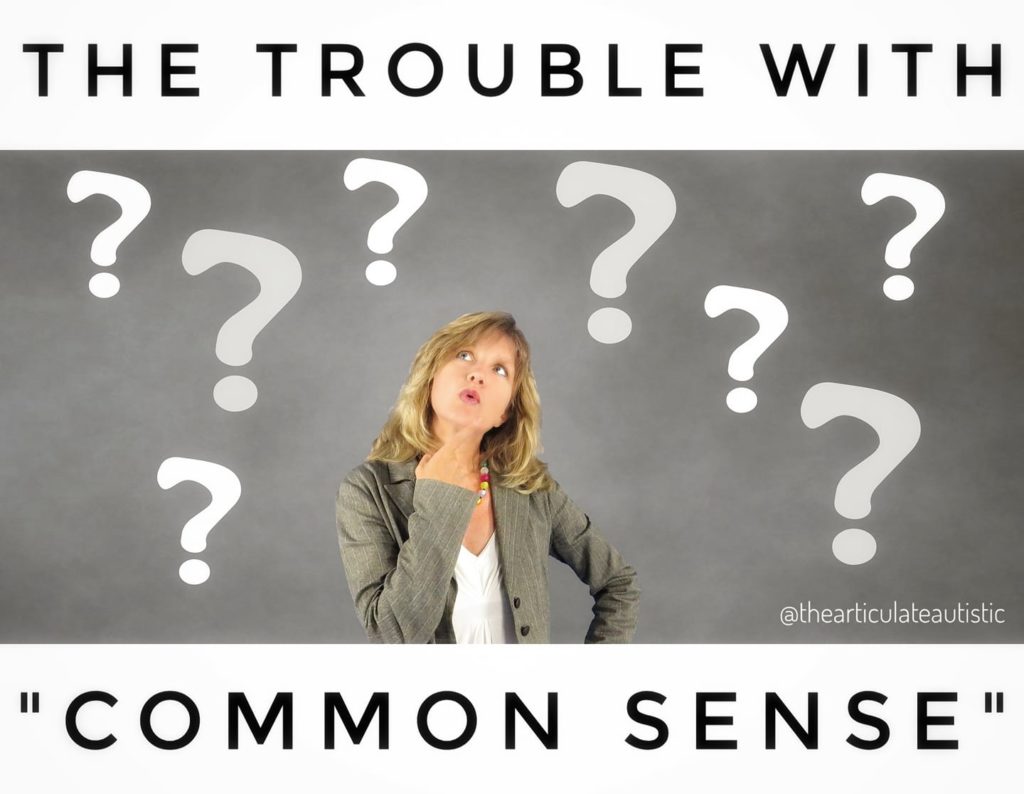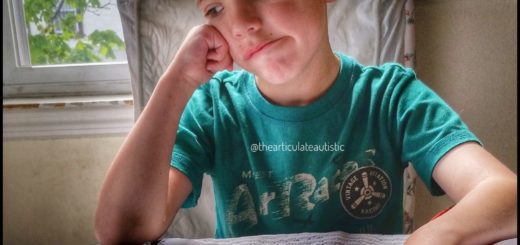Why Even “Beginner” Classes Are Not Helpful for Many Autistic People
![Young woman with brown hair pulled up in a messy bun surrounded by books and looking confused and frustrated. Text reads, "Why even 'beginner' classes are not helpful for many autistic people".]](https://www.thearticulateautistic.com/wp-content/uploads/2020/05/aa_beginner_classes-1024x954.jpg)
In order to put this into context, let’s talk about how I learned to drive. It was horrible for everyone, including me.
I was 17, and the first time I ever got behind the wheel of a car was pretty much that day (although my dad did let me drive his little blue pickup truck around empty parking lots on Sundays back in the ’90s’.)
The first thing I asked the instructor was which one is the gas pedal and which one was the brake. If was a perfectly logical question for me, an absolute beginner (who had forgotten everything she’d learned when she was 13 driving the pickup).
My driving instructor didn’t think it was logical, though. The look he gave me, you’d have thought I’d just peeled some roadkill off the pavement and slapped him across the face with it!
He thought I was joking or screwing with him. Dude, no. I’m a beginner…HELLO??
Well, apparently, as I’ve discovered in my 40 years of stumbling through life, an autistic beginner and a non-autistic beginner are two totally different things.
A non-autistic usually has the basic framework for learning something new because they’ve observed and absorbed what others are doing even if they’ve never yet tried it themselves.
Many autistic people don’t do that. If learning is going to take place, we either go study it on our own out of interest, or we need to be specifically told, “I’m going to teach you something. I need you to pay attention.”
Otherwise, unless specifically requested, many of us are cocooned in our own worlds while simultaneously trying to mask and not fall over while moving our bodies. We don’t have the thought or the energy to observe what others are doing and learn that way.
This is not selfish behavior, it’s survival.
(Article continues below.)
The best way to improve communication with your autistic loved one is to understand how your autistic loved one’s mind works! Intentions, motivations, and personal expressions (facial expressions or lack thereof, body language, etc.), are often quite different in autistic people than they are in neurotypical people.
Experience a better understanding of your autistic loved one by reading books about life from an autistic perspective as well as stories that feature autistic characters. You’ll have so many “Ah ha!” moments and start seeing your autistic loved one in a different light (and you’ll have a better understanding of their behaviors, which you may have been misinterpreting up until now).
Books I recommend for a better understanding of your autistic loved one:
Learning, for many of us, is exhausting and can bring up traumatic memories, so we have to prepare ourselves and be aware that we are expected to learn.
Also, and this is huge, for a beginning autistic, you have to start at the ACTUAL beginning as though we have never seen or been exposed to this thing before because even if we’ve been around it every single day of our lives up until that point, we may not have even noticed.
This is why when I’ve tried beginner’s recipes, dance classes, card playing tutorials, etc., it’s not beginner enough for me, and I just walk away out of confusion.
To circle back to the driving thing for a minute, before GPS was invented, I tried asking for directions from others and I would be told to “get on this highway”, and I couldn’t follow them because they didn’t tell me how to FIND a highway! They also didn’t tell me which direction was east or west, so I would just hang up and stay home.
That’s where I needed to start. Not “get on the highway”. (I don’t know how I finally learned to read the highway signs, but I did. Trial and lots and LOTS of error.)
I also notice that written instructions that come with something you have to assemble leaves out a lot of details, too, because the writers assume you know such and such because it’s “common sense”. Not to me!
So, for me, assembly instructions read like someone wrote step 1 through 5, but left out 4 and was unclear about 3.
Thankfully, the last thing I assembled came with photos, and I also had experience to draw from to figure out what I had to do without dissolving into a meltdown, but it still wasn’t as easy as it could have been had those directions been “written in autistic”.
So, if you’ve ever wondered why you or the autistic person in your life struggles with what the majority of people refer to as “the absolute basics”, they are not absolute basics to us.
They need to be broken down even more, and, sadly, those types of classes and instructions are far and few in between.
Follow me on Instagram.
Want downloadable, PDF-format copies of these blog posts to print and use with your loved ones or small class? Click here to become a Patreon supporter!










a very relatable post – this is why i struggle so much to cook. it feels like somebody’s chopped passages out of the recipe books. i remember pre-diagnosis wanting to write “actual instructions” for beginners: things like “you have to ask somebody in your household what the sqiggly things on the oven mean and then whichever one means fan, twist that (etc, etc).” now i have a set of cards which tell me how to do pasta and a few other basic things, and an internal set of instructions for draining rice, opening cans, and so on. it doesn’t help that the people teaching me interpret my questions as a refusal to learn or do the chores, because then they take over doing the things i needed to learn to do.
All of this. All of this. All of this! Yes!